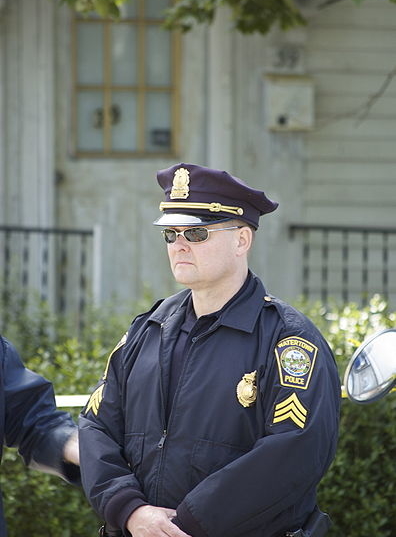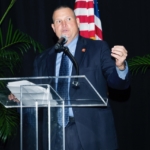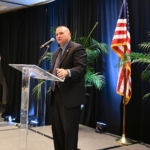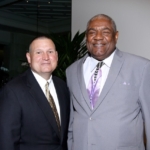2014

Should I Talk to the Police?
Kelly Landers / 0 Comments /In this post, West Palm Beach criminal defense attorney Kelly V. Landers discussed three client examples to help the reader understand the wisest course of action when talking with law enforcement officers.
Most attorneys will tell you to never speak the police. In most cases, this is sound advice. Recently, I wrote about three key reasons to use your right to remain silent. Indeed, remaining silent is often your wisest course of action when dealing with experienced law enforcement officers. However, in certain cases talking to the police can spare you some headaches. The arena of life – like most other areas of life — there are exceptions to every rule. Following are some examples that illustrate the subtleties of the law, an point here is to have a criminal defense attorney present whenever you engage with police officers.
The three examples below are all real-life examples from my experience representing clients as a criminal defense attorney.
In the first case, the client was walking down the street when another individual opened fire at others nearby on the same street. The client was carrying a concealed weapon with a permit, as allowed in the state of Florida. As the person firing the weapon approached him, he felt he had no other choice but to shoot this person. This would appear to be a simple case of self-defense, right?
The client was held in the police detective department for eight hours, wondering y they wouldn’t let him just go home. After all, he did their job for them! Finally, with the presence and advice of counsel, he was able to walk out of the station without being charged. Later, through counsel’s assistance, the State Attorney elected not to prosecute him.
In this example, if the client had chosen not to speak with the detectives and not had counsel present, he surely would have been arrested and charged with a crime. Although at a later date he may have been able to assert a self-defense argument based upon the “Stand Your Ground” law, he would already have been charged. Clearly, speaking with the detectives at the time – with the presence of counsel – was the better decision, as he kept his name untarnished.
In the next case, a burglar had committed 27 burglaries in a suburban South Florida community. On the 28th burglary, he was caught in the act and subsequently questioned by the police. The law enforcement officers had detected a pattern, and informed the client they knew he was responsible for the previous burglaries. The officers promised him that if he confessed to committing the previous burglaries, they would in turn offer him probation as a sentence (a promise police officers are not equipped to make). The client, taking the officers’ words on good faith, admitted responsibility for the previous burglaries. He even rode around the neighborhood with the officers, pointing out for them the other properties he had robbed – to honor his side of the bargain. All of this was done without an attorney present. Later, the officers simply denied ever having made such a commitment.
Fortunately, the client sought the assistance of counsel. Through counsel, a letter was discovered in which the detectives admitted to the prosecutor that they had promised the client probation in return for his confession. As a result of this discovery, the client was able to get the benefit of the promise that the detectives had previously denied existed. If the client had not sought counsel, he might have been stuck with a much tougher sentence than that which the officers had initially promised him. When an attorney is present, the police have to honor any commitments made.
In the third example, a 16-year old client was present during a fatal shooting. The detectives were aware that the client was a juvenile and that he had drove the car containing the guns used in the shooting to the scene. The detectives told the client’s parents that their son was a witness and that they needed his help. They then took Michael to the station, Mirandized him and proceeded to confront him as they would a suspect. After eight hours of questioning with no attorney present, the teenaged client began to agree with the officers — and with their version of events. Even though the detectives lied to him and knew he was a suspect – not simply a witness – the client’s admissions were admitted into evidence at trial.
Each case is unique. Each of these cases clearly demonstrates that advice of counsel can be priceless. An experienced criminal defense attorney can try to determine if the police are truly searching for the truth, or if they are trying to confirm what they believe to be true. An attorney can also advise a client when remaining silent is the wisest course. The lesson is to be assertive and invoke your Sixth Amendment right to counsel when it is appropriate. Until your attorney arrives, your best course of action is to remain silent.






























